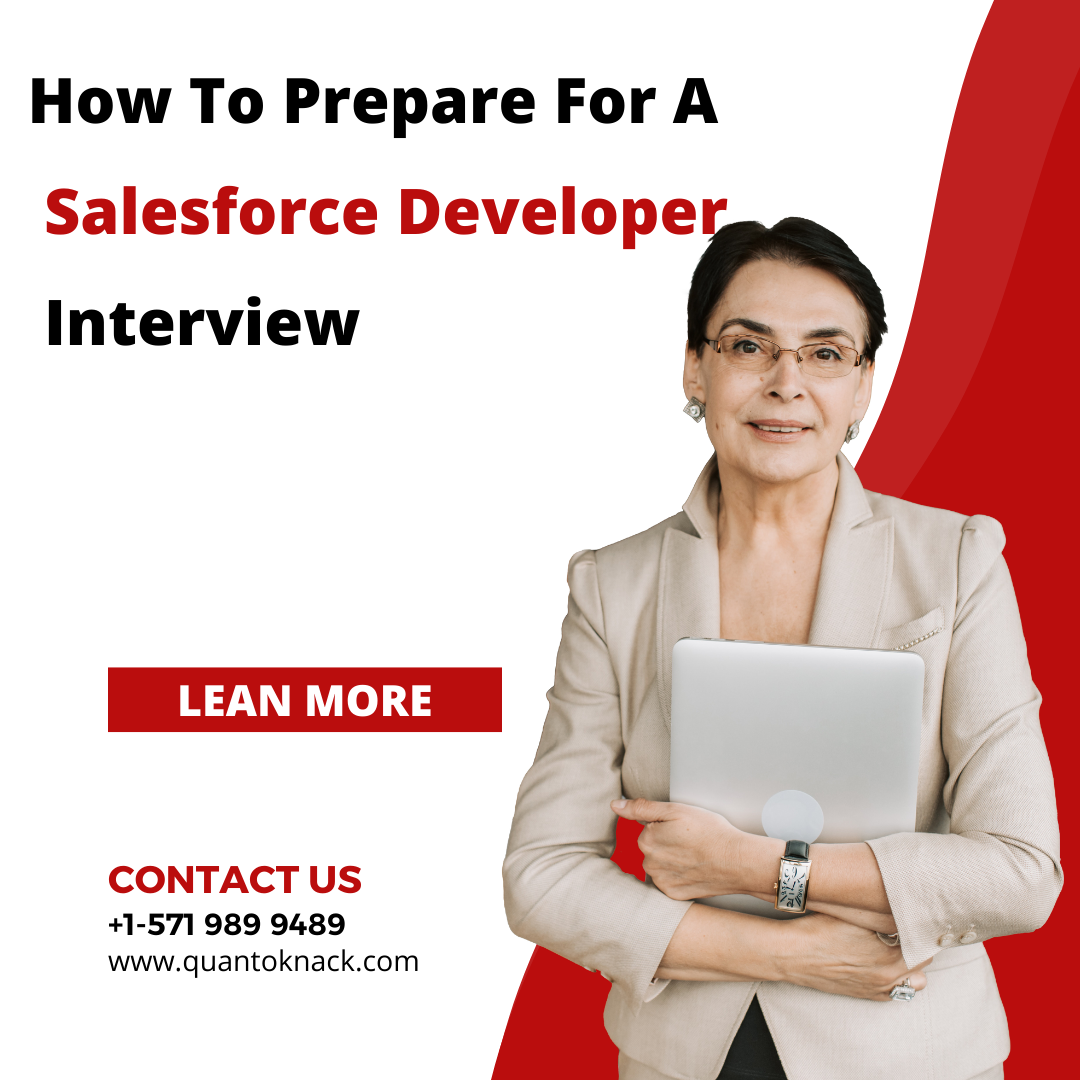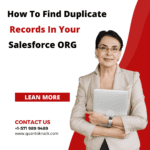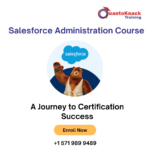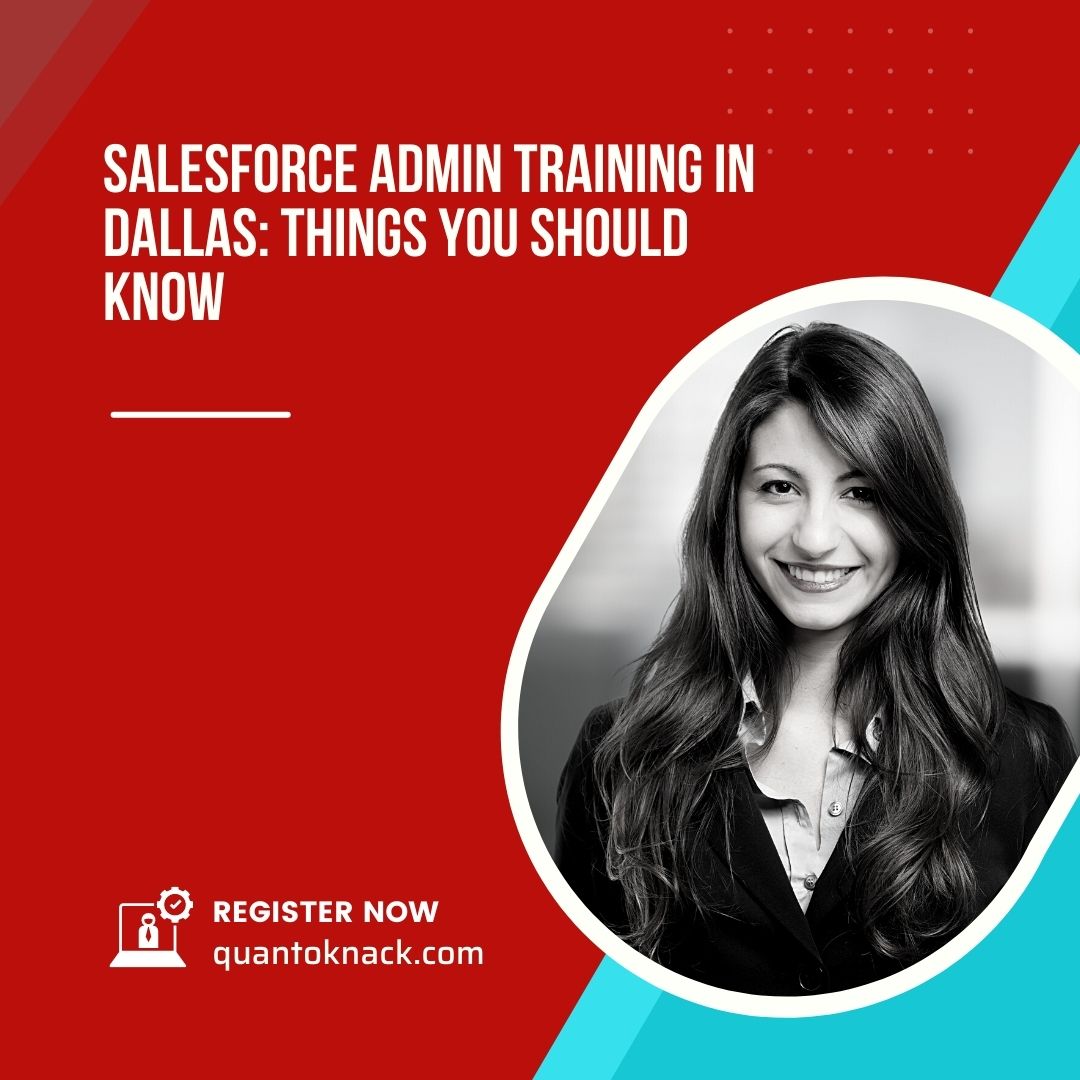
Did you know that in North America, an average of 390 new Salesforce Developer
opportunities are generated each month?
As a Salesforce Developer in Dallas, you’re at a stage in your career where your work and
actions may significantly influence a company’s success. As a result, it’s no surprise that the
recruiting process for developers is frequently extensive and rather aggressive as businesses
compete for the best talent on the market.
Interviews may be challenging, but this does not have to be the case. As with everything,
preparation is key, so as long as you know what to plan before your next Salesforce
developer interview, you can be certain that you are presenting the best version of yourself
to a possible employer.
Here are some key points to keep in mind as you prepare for your next Salesforce developer
interview.
Research the company
We’re quite sure everyone looks at a company’s website before going to an interview, but
that’s not enough these days.
We suggest you check the company’s social channels (Instagram, Twitter, Facebook, etc.) to
get a sense of the company’s culture. You should also look at LinkedIn corporate sites,
hashtags, Google news, and everywhere else that information about a company is
maintained online.
Consider Glassdoor, but as with any review-based platform, be prepared to build your own
impression rather than being deceived by unhappy former workers who may have worked
in entirely other sectors of the organization.
Research the hiring manager
Maybe not as extensively as you stalked the company (or, at the very least, don’t tell the
recruiting manager), but you must go into the interview knowing:
- The hiring manager’s job, how long they have been with the company, and who is on
- their team.
- Where they have previously worked and whether they have worked with anybody
- you know.
- Professional organizations that they are a member of or where they may publish
- work-related information.
Update your portfolio and highlight it during the interview
A Salesforce Developer position is one of the most technical professions available via
Salesforce, and you’ll be required to have a solid understanding of Salesforce’s architecture.
You must be able to execute the work at hand, but employers are more interested in what
you’ve accomplished in the past than what you can accomplish now.
With demand for Salesforce skills increasing, it is your experience as a Salesforce Developer
that distinguishes you as a valuable candidate, and the only way to highlight this is to fill out
your portfolio with all of the projects you’ve worked on, your role in those projects, and
what you learned as a result. Whenever you are asked a technical question, linking it to
something you have worked on in the past is a fantastic way to demonstrate expertise and
experience.
Organize your portfolio so that you can go back and extract which Salesforce version you
worked on, which technologies you used, how long the project lasted, what your learning
outcomes were, and how you would enhance the process if you did it again.
Be Ready For Programming
Though Salesforce developers are not expected to be experts in programming, an ideal
Salesforce developer should be able to design triggers, visualforce pages, and make
configuration modifications. Programming questions such as build a trigger, bulkify a trigger,
develop Lightning Web Components, implement a batch class, and so on might all be part of
the interview.
Salesforce governor restrictions might be a difficult interview subject as well. A question
with numerous answers may lead you to a programmable solution, such as a trigger or Flow,
rather than a solution that can be found in Salesforce’s out-of-the-box capabilities. The
following Programming questions might serve as a good starting point.
- What programming languages have you worked with?
- Tell me about your Apex experience.
- What exactly is a lightning component?
- What is the Cycle hooks in LWC?
- What are the different ways to bind data in LWC?
- How can we pass data from child component to parent component and vice versa?
- How to generate application level event in Lightning Web Component?
- What is the Pub -Sub model in LWC?
- What are the public property in LWC
- How would you handle unit testing?
- Please describe your experience using a developer console.
- On what platform would you build a Salesforce app?
- What exactly is SOQL?
- What is the best practice of an apex class?
- What are the apex design patterns you have used?
- Differentiate between List and Map?
- What is Batch class and what are the interfaces available in the Batch class?
- How do you chain a batch job?
- When can we use the Future method vs Batch apex?
- Have you worked on the Streaming API? If yes, explain how it works?
- Can you tell me about your experience creating Salesforce for mobile apps?
- What exactly is Development Mode, and when would you use it?
- Tell me about an instance when you experienced data loss. How did you fix it?
Be a Puzzle Solver
It’s an excellent habit to solve puzzles. Solving puzzles connected to programming will
provide you insight into many other areas. Going through many requirements and solutions
is the greatest technique to becoming a proficient puzzle solver.
It is prudent to choose brief needs and envisage how they may be solved while performing a
requirement analysis. Puzzles can be both technical and non-technical, and they test your
logic and technical knowledge.
Show Your Passion
- What drives you? Why does Salesforce exist? Interviews are your opportunity to create a
good first impression. Be prepared to express your enthusiasm for the part – and, most
importantly, be yourself! Authenticity contributes to developing trust.
Be Self-Assured: No one understands your history better than you! Spend some time
ahead of time organizing your thoughts and practicing your answers. Share your
background and skills casually and genuinely throughout the interview. This will
improve your speech and show your confidence in your abilities. - Share Your Interests: Be open and honest about your likes and dislikes, areas where
you believe you can contribute value, and long-term aspirations. The Hiring Team
can assure a good fit when you’re open about who you are. - Be Prepared to Explain “Why Salesforce”: What drew you to this role? This will assist
hiring staff in understanding your beliefs and how you want to contribute to the
company’s success.
Prepare the Basics
- Some of these may seem simple, yet they are so crucial that they must be mentioned. It is
normal to be apprehensive before an interview. Consider this your checklist for calming last-
minute anxiety. - Practice Your Setup: Most sessions will be placed via MS Team, but your recruiting partner will offer specific instructions for your interview. Get help from a friend or family member to confirm that your equipment is operational and that you are comfortable with the settings. Consider using a headset or noise-canceling headphones to ensure your audio is clearly heard.
- Check for full power and/or that your PC is connected.
- Be Visible: Always keep your camera turned on unless it causes delays. If this happens, try connecting directly to your router or sitting near your device. Another possibility is to talk about shutting off the camera to build your relationship with your interviewer. Keep in mind that some people, particularly those with hearing issues, may prefer to keep the camera on so they can interpret speech.
- Join on Time: Just like you would for an on-site interview, arrive early.
- Be Present: Give the interviewer your undivided attention. Turn off all other gadgets
to avoid multitasking, such as checking email, phone, and so on. - Choose Your Location Deliberately: Portray your personal brand by choosing a quiet corner that allows you to focus, has soft lighting, and minimizes distractions. Your “home office” might be a bedroom, a shared area, or perhaps you have a dedicated office. In any case, interviewers aren’t bothered with the opulence of your surroundings. Simply control the components of your surroundings over which you
have control.
Conclusion
The need for salesforce developers is growing rapidly. As per IDC, company income from
Salesforce Cloud Services will total $1.2 trillion in the Salesforce economy from 2019 to
This data is sufficient to predict that the recruiter will employ three times as many
Salesforce developers in the future.
Don’t be concerned about the Salesforce Developer interview. You’ve got this. All you have
to do is focus on the questions and not get distracted if you don’t know the answer. It’s all right!
Want to ace your Salesforce developer interview and land your dream job?
Enroll in QuantoKnack’s Salesforce Developer Training course to learn how to use the
Salesforce CRM platform. We provide the finest online training sessions for Salesforce Apex,
triggers, MVC architecture, data validation, Developer Console, controllers, and much more.
Our Salesforce Developer Training course strives to provide high-quality learning that
combines a foundational understanding of essential ideas with a hands-on approach.
Exposure to real-life use-cases and scenarios will assist learners in scaling up their abilities
and doing real-time projects using best practices.
Register for Our Salesforce Developer training now and pass the Salesforce
Developer Certification. We will assist you in shining throughout the interview process!






